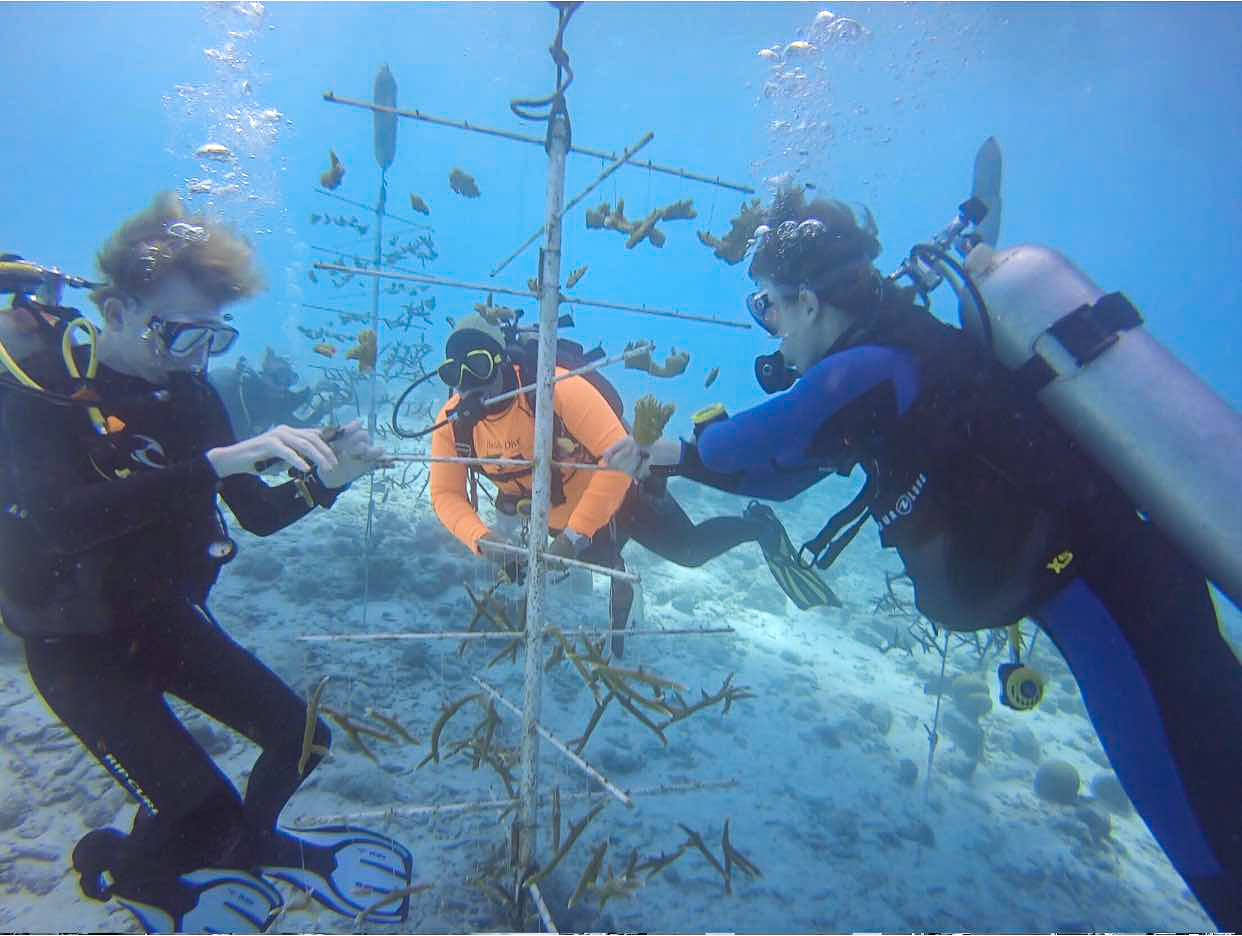
Coral Restoration - Bonaire
Category
Cultural profile 2022We are currently working on arranging a trip to the Bonaire Isles (prev. the Netherlands Antilles), but there are still some reservations regarding the destination, since the project and the interaction with a local school comes before the destination.
The trip
In 1998 it was stated that up to 97% of the surrounding coral reefs on some island groups were bleached and destroyed (because of El Niño), which effected the marine life heavily and thereby also the part of the population that relied on fishing. After intense restoration work with coral cultivation in so-called "nurseries", fragmentation and later release into the wild, the coral coverage was increased from 2-3% in 2012 to 16% in 2014 and even more coverage in the following years - our effort helps.
In addition, we will dive, snorkel, participate in coral farming, possibly school visits, fishing, agricultural visits and cooperation.
The Lessons
We are going to study bleached and damaged coral reefs first-hand, fragment corals and help with the restoration of coral reefs. We will experience the role the coral reefs play biologically as well as societal for the inhabitants of the Bonaire Isles, experience how they live and eat and what actions and precautions they take to secure sustainable production and consumption on the islands.
UN's 17 Development Goals
- Goal 12: Responsible consumption and production
- Goal 13: Climate action
- Goal 14: Life below water
Corona: Restrictions, rules etc.
You need to be fully vaccinated/coronapas, have a negative PCR, gag during travel.
The Dutch authorities have indicated that the following rules apply to the entry and exit of Danes in the Caribbean parts of the Netherlands: Aruba, Curacao and St. Maarten (the Dutch part of the island), as well as for the three special Dutch municipalities: Bonaire, St. Eustatius and Saba.
- Visa-free for 90 days within 180 days.
- The passport must be valid for the entire period of stay.
- A return ticket, sufficient financial means for the stay and a valid explanation for the stay are required.
- Extended Danish passports are recognised for entry and exit. Please note that the total validity of the passport may not exceed 10 years (Danish adult passports are issued with a validity of 10 years).
- Danish temporary (provisional) passports are recognised for entry and exit.
- EU emergency passport - not disclosed
Safety
- Passport must be valid at least 6 months after the trip begins.
- Sailing near the coast is safe - offshore sailing is not advised because of the threat of pirates.
- Ordinary vigilance should be exercised in relation to traffic with larger sums of money
- Caution should be exercised when driving in "wild" terrain.
- In connection with diving/swimming/bathing the local daily warnings should be adhered to.
Requirements for the students
- No particular requirements beforehand - Diving certificate - Open Water provides you with better opportunities in relation to the studies.
- Motivation to study the marine life and participate in the studies and the work.
- Courage to meet new people with a different view of life and different living conditions.
- Diving certificate (Open Water Diver) can optionally be acquired simultaneously with the culture subject.
Teachers
 |
| Rolf Iversen ri@ranumefterskole.dk |
Terms and economy
Self-payment: approx. 10.900 DKK.
Pocket money: recommended 1.000 DKK.
Vaccinations: See Corona section. Tetanus, Diphtheria, Hepatitis A





